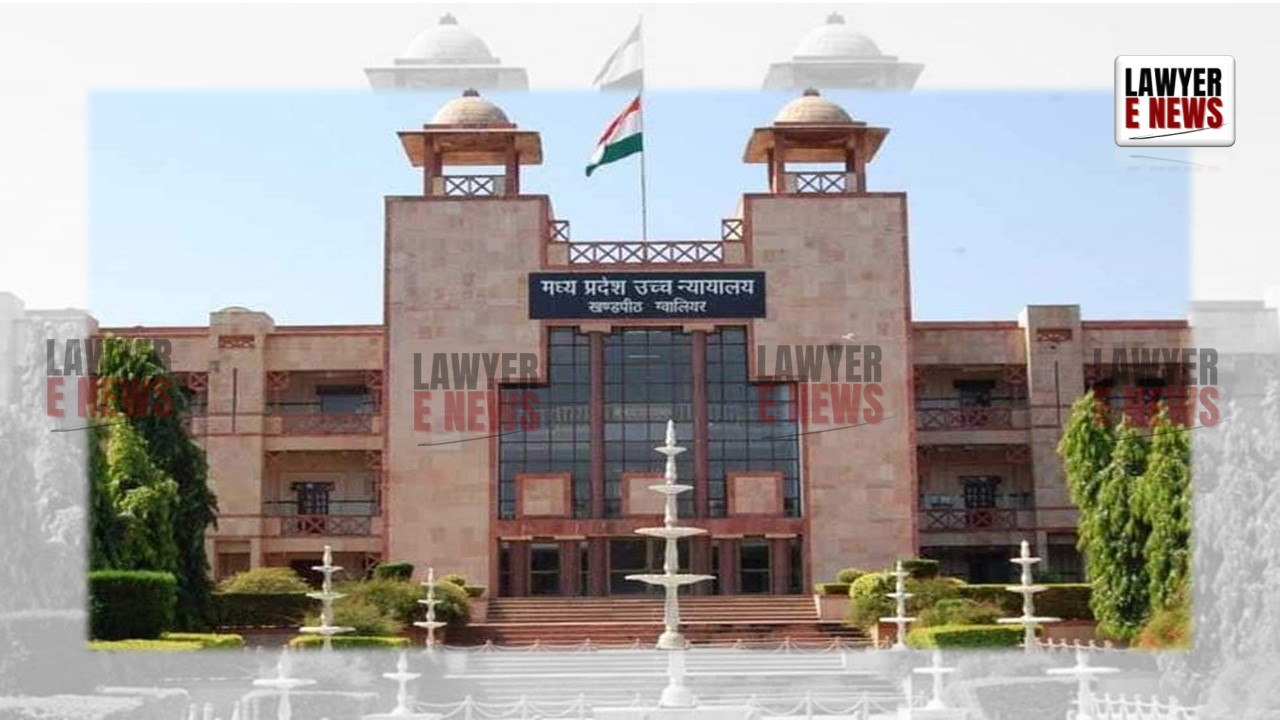-
by sayum
14 February 2026 2:22 PM



Absence of Corroboration Not Fatal; Prosecutrix's Testimony Alone Sufficient to Sustain Conviction: Madhya Pradesh High Court Upholds Rape Conviction
On September 24, 2024, the Madhya Pradesh High Court, in Ramhit vs. State of M.P., upheld the conviction of Ramhit for the offence of rape under Section 376 of the Indian Penal Code (IPC). However, the Court reduced the sentence from 7 years to 4 years of rigorous imprisonment, citing the passage of time (27 years since the incident), the appellant's advanced age, and his lack of prior criminal record. The Court also enhanced the fine from Rs.1,500 to Rs.50,000.
The case stems from an incident that occurred on February 23, 1997, when the prosecutrix alleged that Ramhit forcibly raped her in a cotton field. Following the incident, the prosecutrix reported the crime, leading to the conviction of Ramhit under Section 376 IPC. The appellant sought acquittal on appeal, contending that the evidence was insufficient, the prosecutrix lacked injuries, and the conviction stemmed from old enmity between the families. Despite these arguments, the trial court convicted him and sentenced him to 7 years of rigorous imprisonment.
The appellant contended that the prosecutrix’s testimony was unreliable due to contradictions and the absence of injuries. The Court, however, emphasized that a conviction for rape can rest solely on the testimony of the prosecutrix if it is credible and consistent, even in the absence of corroborating evidence.
The Court cited the Supreme Court's rulings in State of Punjab vs. Gurmit Singh and Bharwada Bhognibai Hirjibai vs. State of Gujarat, reaffirming that minor discrepancies do not discredit the entire case if the core of the testimony remains intact. The prosecutrix’s account of the incident, although lacking physical injuries, was consistent and supported by witness statements.
"The testimony of the victim of a sexual offence is entitled to great weight, absence of corroboration notwithstanding." [Para 19-23].
The appellant argued that prior enmity with the prosecutrix’s family led to his false implication. The Court acknowledged the existence of enmity but noted that it could serve both as a motive for the crime and as a reason for false implication. The evidence did not support the appellant’s claim of false implication, and the prosecutrix had no motive to falsely accuse him of such a serious crime. The Court concluded that enmity alone was insufficient to dismiss the testimony.
"Enmity is a double-edged sword that can provide both a motive for the crime and a possibility of false implication, but the evidence here supports the prosecution’s case." [Paras 14-15].
The appellant’s counsel argued that the absence of injuries on the prosecutrix’s body indicated that no force was used, and therefore, no rape occurred. The Court rejected this argument, holding that the absence of injuries does not negate the occurrence of rape. Citing B.C. Deva @ Dyava vs. State of Karnataka, the Court reiterated that injuries are not a prerequisite for proving rape, and the testimony of the prosecutrix alone can be sufficient.
"In the absence of external injuries, the oral testimony of the prosecutrix cannot be ignored and is sufficient to prove the offence." [Para 18].
The Court upheld the conviction but found adequate reasons to reduce the sentence under the proviso to Section 376(1) of IPC. The Court considered the following factors:
The incident occurred 27 years ago, and the appeal had been pending for 24 years.
The appellant was 54 years old and had no criminal history.
Given the significant passage of time, the Court exercised its discretion to reduce the sentence.
"Considering the passage of time, the appellant's age, and lack of criminal antecedents, there are adequate reasons to reduce the sentence from 7 years to 4 years R.I." [Paras 26-28].
The fine imposed was increased to Rs.50,000, to be paid as compensation to the prosecutrix. In the event of non-payment, the appellant would serve an additional three months of simple imprisonment.
The Madhya Pradesh High Court affirmed the appellant’s conviction for rape under Section 376 IPC, finding that the prosecutrix’s testimony was credible and consistent. However, in light of the appellant’s age, lack of prior criminal record, and the long passage of time since the incident, the Court reduced the sentence from 7 years to 4 years of rigorous imprisonment with an enhanced fine of Rs.50,000. The appellant was directed to surrender within 15 days to serve the remaining sentence.
Date of Decision:September 24, 2024
Ramhit vs. State of M.P.
